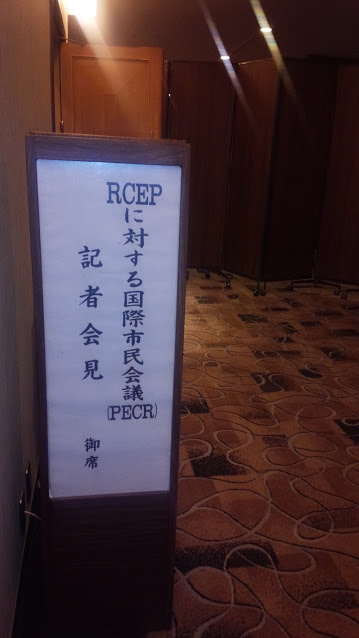RCEP envoys make progress on trade deal in Kobe but complexity threatens timeline

The Japan Times | 3 March 2017
RCEP envoys make progress on trade deal in Kobe but complexity threatens timeline
Negotiators from 16 nations accounting for half the world’s population inched closer to drafting a multilateral trade treaty after five days of negotiations that went late into Friday evening.
But disagreements over issues ranging from how to handle intellectual property rights to tariff reductions continue to divide developed and lesser-developed members, raising questions about whether an ambitious agreement for the Asia-Pacific region that excludes the United States but includes China and India can be reached by the end of the year.
The Kobe round of negotiations for the Regional Comprehensive Economic Partnership, the first since U.S. President Donald Trump pulled the U.S. out of the Trans-Pacific Partnership agreement, was to have set the tone for further negotiations this year and culminate in an agreement by the end of the year.
But with TPP dead, RCEP members Japan, South Korea, New Zealand and Australia found themselves in Kobe trying to push for an agreement more detailed than what many of the less economically developed members of the 10-nation Association of Southeast Asian Nations want.
The Kobe round began Monday with negotiators wondering what the effect of America’s withdrawal from TPP would have on the talks, and whether India and especially China, which are in RCEP but not the TPP, might now play. Several delegates and NGOs also noted that China was quieter than expected and may be waiting to see what happens after Kobe.
“Apparently (Chinese negotiators) are known for biding their time and then releasing all their requests at the very end of the negotiations. Hopefully they will not wait until too late in the talks this time, because ASEAN in particular takes a long time to come to any sort of agreement,” said Deborah Elms, executive director of the Asian Trade Center in Singapore, who attended the first four days of the Kobe round.
But Elms noted that the deadline is late this year, though an artificial one is coming up fast.
Jane Kelsey, a law professor at the University of Auckland, said it appears that only about a quarter of the 15-chapter RCEP treaty has been finalized. But because most of the text, like the TPP, is still secret, she said more transparency was needed.
“We need more openness in the RCEP process, so that includes more stakeholders, including civil society. There has been some more openness recently. But it’s nothing like the access that business has to promote its interests,” Kelsey said.
RCEP, originally envisioned as a multilateral treaty to compliment the TPP, includes the 10 ASEAN members — Brunei, Cambodia, Indonesia, Laos, Malaysia, Myanmar, the Philippines, Singapore, Thailand and Vietnam — plus Australia, China, India, Japan, New Zealand and South Korea.





